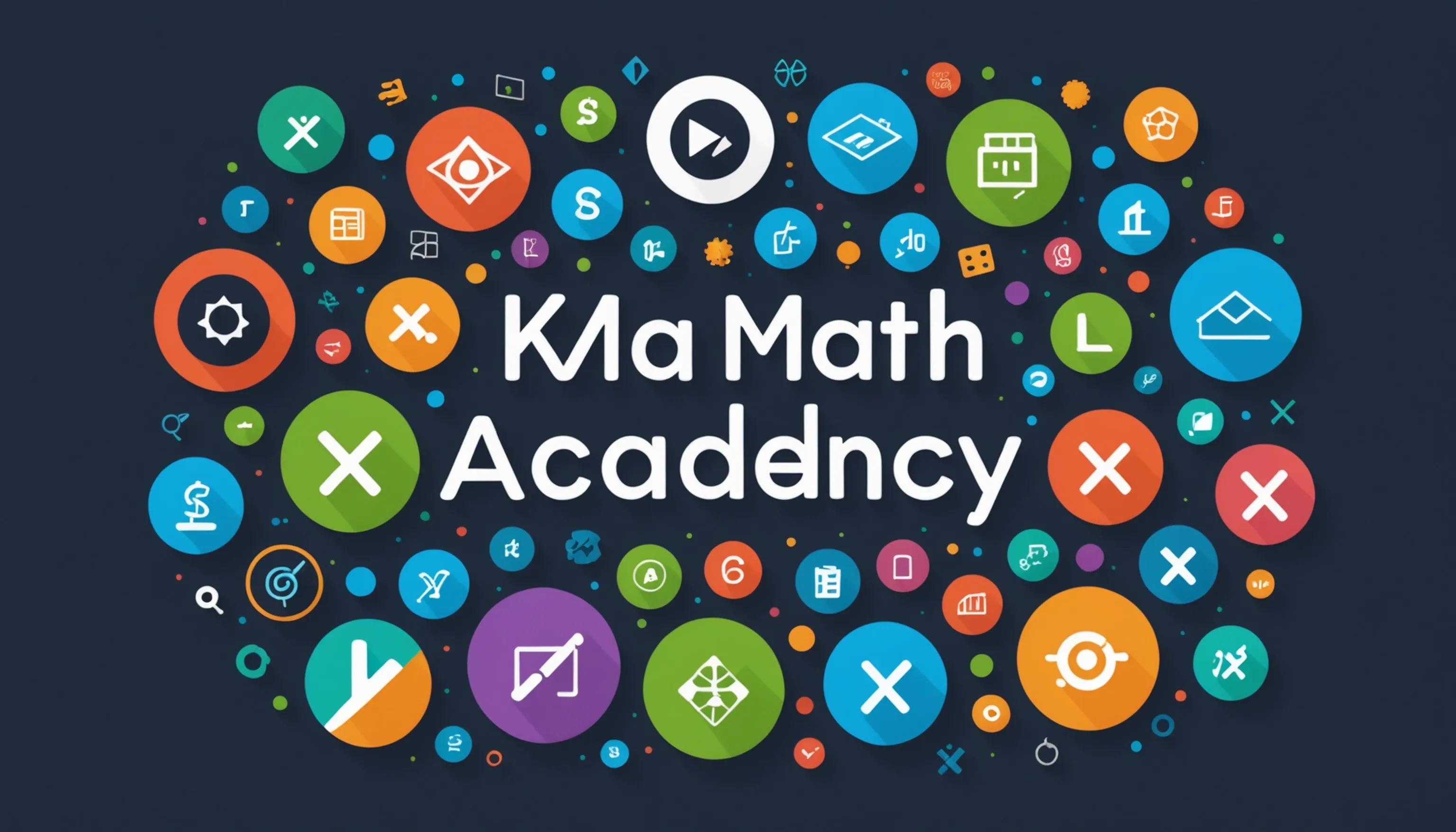Online Afterschool Math Learning Platforms
 HvWHenry van Wagenberg
HvWHenry van Wagenberg
Best Online Afterschool Math Learning Platforms
When it comes to finding the best online afterschool math learning platforms, several options stand out for their effectiveness and engagement. These platforms cater to various learning styles and provide personalized experiences for teens. Popular choices include:
- Khan Academy - Offers comprehensive lessons and practice exercises.
- IXL Math - Provides adaptive learning paths tailored to individual skill levels.
- Prodigy Math - Engages students through interactive gameplay while reinforcing math concepts.
- Mathletics - Combines curriculum-based learning with fun challenges.
These platforms not only enhance math skills but also make learning enjoyable.
Benefits of Online Math Learning Platforms
Online math learning platforms offer a multitude of benefits that can greatly enhance your teen's educational experience. One of the primary advantages is the flexibility they provide. Students can learn at their own pace, allowing them to spend more time on challenging concepts without feeling rushed. This personalized learning approach helps build confidence and a deeper understanding of mathematical principles.
Another significant benefit is accessibility. With just an internet connection, students can access a wealth of resources, including video tutorials, practice exercises, and interactive quizzes, anytime and anywhere. This means that learning can continue outside of traditional classroom hours, reinforcing what they’ve learned in school.
Additionally, many platforms employ gamification techniques, making learning more engaging and fun. By incorporating elements like rewards, levels, and challenges, these platforms motivate students to complete exercises and master new skills. This can lead to a more positive attitude towards math.
Online math learning platforms also provide valuable progress tracking and analytics. Parents and teachers can easily monitor a student’s performance, identifying strengths and areas that need improvement. This data-driven approach helps in customizing learning experiences to better suit individual needs.
Lastly, these platforms often include a variety of resources catering to different learning styles. From visual aids to interactive activities, students can find the methods that work best for them, ultimately enhancing their overall math proficiency.
How to Choose the Right Platform for Your Teen
Choosing the right online math learning platform for your teen can significantly impact their educational journey. Here are some key considerations to help you make the best decision:
- Assess Learning Needs: Start by understanding your teen's current math skills and areas where they need improvement. Some platforms focus on basic concepts, while others cater to advanced topics. Choose a platform that aligns with your teen's needs.
- User-Friendly Interface: The platform should have an intuitive and easy-to-navigate interface. A complicated layout can discourage your teen from using the site. Look for platforms that provide a seamless user experience.
- Engagement and Interactivity: Opt for platforms that incorporate engaging elements, such as games, quizzes, and videos. These features can make learning more enjoyable and keep your teen motivated.
- Progress Tracking: Select a platform that offers robust analytics and progress tracking tools. This will allow you and your teen to monitor their performance and identify areas that need more focus.
- Trial Period: Many platforms offer free trials or demo versions. Take advantage of these to assess whether your teen finds the platform effective and enjoyable.
- Reviews and Recommendations: Research reviews from other parents and educators to gauge the effectiveness of the platform. Recommendations from trusted sources can also be invaluable in making your choice.
By considering these factors, you can choose a platform that best supports your teen's math learning journey.

Top Online Math Learning Platforms
When it comes to the top online math learning platforms, several options are widely recognized for their quality and effectiveness. First on the list is Khan Academy, which offers a comprehensive library of free resources covering various math topics. Next is IXL Math, known for its adaptive learning paths that tailor lessons to each student's skill level. Prodigy Math engages students through interactive gameplay, making math fun and challenging. Lastly, Mathletics combines curriculum-aligned learning with exciting competitions. These platforms not only enhance understanding but also foster a love for math.
Khan Academy
Khan Academy is a leading online educational platform that offers a wealth of resources for students of all ages, particularly in math. Founded in 2008, this nonprofit organization aims to provide a free, world-class education to anyone, anywhere. The platform is particularly renowned for its comprehensive math curriculum, which covers topics ranging from basic arithmetic to advanced calculus and linear algebra.
One of the standout features of Khan Academy is its extensive library of instructional videos. These videos break down complex concepts into easily digestible segments, allowing students to learn at their own pace. Each video is accompanied by practice exercises that reinforce the material, enabling learners to apply what they've just watched.
Moreover, Khan Academy utilizes a personalized learning dashboard. This dashboard tracks students' progress and identifies areas where they may need additional practice. With this feature, students can focus on specific skills or revisit challenging topics, ensuring a tailored learning experience.
Another significant advantage of Khan Academy is its accessibility. The platform is entirely free, making it a valuable resource for families and educators seeking quality educational content without financial barriers. Additionally, it can be accessed on various devices, allowing students to learn anywhere and anytime.
In summary, Khan Academy is an excellent choice for teens looking to strengthen their math skills, thanks to its comprehensive resources, personalized learning paths, and commitment to free education.
IXL Math
IXL Math is a highly regarded online learning platform that offers a comprehensive approach to math education for students of all ages. Renowned for its adaptive learning technology, IXL tailors its lessons to meet each student's unique skill level and learning pace, making it an ideal choice for personalized math practice.
One of the standout features of IXL Math is its extensive question bank, which covers a wide range of topics from elementary mathematics to high school algebra and geometry. Each question is designed to challenge students while providing instant feedback, allowing them to understand their mistakes and learn from them. This immediate feedback loop is crucial for mastering mathematical concepts.
IXL also employs a unique skill tree that visually tracks students’ progress through different math topics. As students complete questions, they earn points and accolades, motivating them to continue their learning journey. This gamified approach not only makes learning fun but also instills a sense of achievement.
Furthermore, IXL Math offers detailed analytics for parents and educators, allowing them to monitor student performance and identify areas that may require additional focus. This data-driven insight is invaluable for supporting students in their learning journey.
Overall, IXL Math stands out as an effective platform for students seeking to enhance their math skills through personalized learning, immediate feedback, and engaging content, making it a top choice for parents and educators alike.

Prodigy Math
Prodigy Math is an innovative online math learning platform that combines education with gaming, making math practice exciting for students. Designed for children in grades 1 through 8, Prodigy Math engages learners through a fantasy-based game where they embark on adventures while solving math problems. This gamified approach not only captures students' interest but also motivates them to practice regularly.
As students play, they encounter math challenges that align with their grade level and skill set. Prodigy Math adapts to each learner's individual pace, ensuring that they are appropriately challenged without feeling overwhelmed. This personalized learning experience helps build confidence and reinforces foundational math skills.
One of the key features of Prodigy Math is its curriculum-aligned content, which covers a wide range of topics, including addition, subtraction, multiplication, division, fractions, and more. As students progress, they earn rewards and unlock new features, which keeps them engaged and encourages continued participation.
For parents and educators, Prodigy Math provides valuable insights through its reporting tools. These analytics allow adults to track student progress, identify strengths and weaknesses, and tailor instruction accordingly. This data-driven approach empowers parents to support their child's learning effectively.
Overall, Prodigy Math is an excellent choice for students who may struggle with traditional learning methods. By integrating math practice into an engaging gaming environment, Prodigy makes learning both fun and effective.
Mathletics
Mathletics is a dynamic online math learning platform designed to enhance math skills for students from early elementary through high school. With its engaging and interactive features, Mathletics aims to make math learning enjoyable while ensuring students grasp essential concepts effectively.
One of the standout aspects of Mathletics is its comprehensive curriculum, which aligns with international standards. It covers a wide array of topics, including arithmetic, geometry, algebra, and statistics, allowing students to explore various areas of mathematics. Each lesson is crafted to cater to diverse learning styles, ensuring that all students can find a method that resonates with them.
Mathletics incorporates a gamified approach to learning, where students can earn points and rewards as they complete exercises and challenges. This element of competition motivates learners to practice more frequently and strive for improvement. Additionally, the platform features live math competitions, allowing students to challenge their peers in real-time, further enhancing engagement.
For parents and teachers, Mathletics offers robust reporting tools that track student progress and performance. This data enables adults to identify areas where students excel or may need additional support, fostering a tailored learning experience.
Overall, Mathletics stands out as an effective resource for students looking to boost their math skills. Its blend of engaging content, comprehensive curriculum, and interactive features makes it a valuable tool for learners aiming to achieve math proficiency.
Tips for Supporting Your Teen's Math Learning
Supporting your teen's math learning can significantly enhance their understanding and confidence in the subject. Here are some effective tips:
- Encourage a Positive Attitude: Foster a growth mindset by emphasizing that effort and practice lead to improvement. Remind them that mistakes are part of the learning process.
- Create a Productive Learning Environment: Designate a quiet, distraction-free space for studying. Ensure they have all necessary materials, such as calculators, notebooks, and access to online resources.
- Set Realistic Goals: Help your teen set achievable, specific goals for their math learning. This can motivate them and make progress more tangible.
- Utilize Online Resources: Encourage the use of online math platforms like Khan Academy or Prodigy Math for additional practice and support.
- Stay Involved: Regularly check in on their progress, discuss challenges, and celebrate successes to show your support.
Creating a Productive Learning Environment
Creating a productive learning environment is crucial for your teen’s success in math. A well-structured space can enhance focus and motivation, making studying more effective. Here are some essential tips to establish an optimal learning environment:
1. Choose the Right Location: Select a quiet area in your home that is free from distractions, such as television or noisy siblings. A dedicated study space signals to your teen that it’s time to focus on learning.
2. Ensure Proper Lighting: Good lighting is vital for reducing eye strain and maintaining concentration. Natural light is ideal, but if that’s not possible, opt for bright, adjustable lamps that illuminate the workspace adequately.
3. Organize Supplies: Keep all necessary materials within reach, such as notebooks, calculators, and writing utensils. An organized workspace prevents unnecessary interruptions, allowing your teen to stay engaged with their studies.
4. Limit Digital Distractions: Encourage your teen to silence notifications on their devices and use website blockers if they tend to get distracted by social media or games during study time.
5. Establish a Routine: Consistency is key. Set specific times for studying math, making it a part of their daily schedule. A routine helps reinforce the habit of focused learning.
By implementing these strategies, you can create a supportive learning environment that encourages your teen to thrive in their math studies.
Setting Goals and Tracking Progress
Setting goals and tracking progress are essential components of your teen's math learning journey. Clear, attainable goals provide direction and motivation, while tracking progress helps measure success and identify areas for improvement. Here are some effective strategies to implement these practices:
1. Define SMART Goals: Encourage your teen to set SMART goals—Specific, Measurable, Achievable, Relevant, and Time-bound. For instance, instead of saying, "I want to get better at math," they could set a goal to "complete five math practice exercises every week for the next month." This specificity helps them stay focused and accountable.
2. Break Goals into Smaller Steps: Larger goals can be overwhelming. Help your teen break them into smaller, manageable tasks. For example, if the goal is to improve their grade, they might start with daily practice sessions or weekly quizzes.
3. Use a Tracking System: Implement a tracking system, such as a chart or digital app, where your teen can log completed tasks and monitor their progress. Seeing their achievements can boost their motivation and confidence.
4. Celebrate Milestones: Recognize and celebrate when your teen reaches significant milestones or achieves goals. This positive reinforcement encourages continued effort and commitment to their learning.
By setting clear goals and tracking progress, your teen can develop a sense of ownership over their math learning, ultimately leading to greater success and self-confidence in the subject.
Encouraging a Growth Mindset in Math
Encouraging a growth mindset in math is essential for helping your teen develop resilience and a positive attitude toward learning. A growth mindset is the belief that abilities and intelligence can be developed through dedication and hard work. Here are some effective strategies to foster this mindset:
1. Emphasize Effort Over Results: Reinforce the idea that effort is more important than immediate success. Praise your teen for their hard work and perseverance, even if they don't achieve the desired outcome right away. This encourages them to embrace challenges rather than shy away from them.
2. Normalize Struggle: Help your teen understand that struggling with math concepts is a normal part of the learning process. Share stories of famous mathematicians and scientists who faced challenges and setbacks before achieving success. This can inspire them to view difficulties as opportunities for growth.
3. Encourage Risk-Taking: Create an environment where it's safe to take risks and make mistakes. Encourage your teen to try new approaches to solving problems, even if they're unsure of the outcome. Remind them that mistakes are valuable learning experiences.
4. Set Challenging Goals: Encourage your teen to set challenging yet attainable goals. This pushes them out of their comfort zone and promotes growth. Regularly review these goals together to discuss progress and adjust as needed.
By fostering a growth mindset, you can help your teen develop resilience and a lifelong love of learning in math, equipping them with the skills to tackle challenges confidently.
